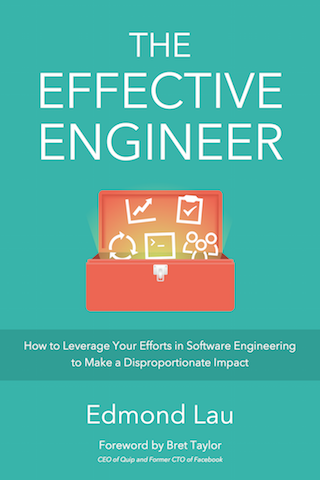How to Transition from Average Engineer to 10x Engineer

Can an average engineer develop technical skills that surpass 10x the abilities of his or her peers? Unlikely.
Can an engineer of average technical ability develop into an individual contributor who produces 10x the impact of his or her peers? With the right mindset and skill development, absolutely.
The key to making that transformation is understanding the distinction between those two questions.
Technical Expert Versus Problem Solver
Many years ago, a Russian hacker worked on my team. He could skillfully reverse engineer complex software. Given a hard, one-off problem, he could quickly assemble a working prototype or solution faster than any of my teammates. Unfortunately, he also didn’t value writing readable code, and his contributions would frequently balloon into liabilities for anyone who needed to maintain them. That lack of empathy for his fellow teammates severely limited his impact.
This experience illustrates one of the biggest misconceptions that engineers hold: equating technical ability with impact. Many software engineers, for example, will narrowly define their roles as coders and programmers. Even for those who cared about their craft, leveling up their careers often just means improving their technical expertise so that they can write better code.
There’s nothing wrong with honing your technical skills, of course — many of us became engineers because it’s incredibly satisfying to build things. And the best technical experts in our fields often garner the respect of their peers.
Increasing technical expertise, however, is not the only avenue for increasing your impact. And if you’re not in the top echelon of technical experts, a viewpoint that leads you to solely focus on deepening your technical skills can become a limiting mindset.
If instead, you broaden your mental model of an engineer as someone who solves real problems for users, you open up more opportunities for yourself. Ultimately what matters in terms of success and impact is not whether you can write the best code or solve the hardest technical problems but whether you’re creating value for people.
By thinking of engineers as problem solvers, you can start to ask yourself questions like:
- What problem should I focus my energy on to maximize value for users?
- How can I prioritize my work to deliver value sooner?
- How can I reduce risk to improve the likelihood of success of what I work on?
- How can I resolve conflicts with my teammates to build stronger working relationships so we can get more done?
- How can I better communicate with my immediate team or with related business or sales teams to ensure smoother releases and launches?
- How can I better ensure that users actually take advantage of the potential value of what I’ve built once it’s done?
Technical execution is only one step — albeit an important one — in a multi-stage process of creating value. That process is a pipeline that transforms your engineering effort into impact, and each step of that pipeline can be modelled as a potential multiplier. To double your impact, for instance, you could “double” your technical skills. 1 Or, you could learn to direct your engineering effort to problems that are twice as valuable or develop workflows to reduce the risk and failure rates of your projects by half.
Master Skills that Compound Your Impact
So how might an engineer with only average technical ability grow into someone who can produce 10x the impact of his or her peers? The key insight from our simple model is that you actually have many levers under your control.
Even assuming that your technical skills will plateau, you can and should still continue to invest in your technical skills. But there are also many other skills and activities that can produce a multiplicative increase in the impact they create. Those multipliers compound. Stack enough together, and you get closer to becoming a 10x engineer.
For example, you can:
- Find cheaper ways to validate hypotheses. If you can quickly prototype multiple ideas and reject bad ones based on feedback, you’ll end up finding the most promising options much more quickly than someone who feels like he has to perfectly engineer something to completion before showing it to users. This advantage is a reason why at Quip, our engineers often spend time continuously and cheaply user testing product changes to validate our hypotheses before investing too much energy in a particular direction.
- Finish and ship your deliverables. How many of your projects remain partially finished and unshipped? Often, the most technically interesting parts of a project are at the beginning (as you’re exploring something new) or in the middle (as you’re executing and making progress). The last 10% of work to get something shipped — and all of the coordination, bug-fixing, approvals, and testing involved — can be tedious. But without that last 10%, you’ve invested 90% of the work and materialized 0% of the actual business value. Become the person who’s able to finish and ship projects, and you’ll produce disproportionately more value than those who only do them partway.
- Deeply understand the business domain you’re working in. Imagine if instead of just working on what you’re assigned, you’re able to identify new strategic areas, projects, or tools for the business and work on those problems. You’d be able to deliver more impact with the same amount of engineering effort because you’re in a more valuable playing field. Your wins would be worth more. The way to getting that insight is by talking to your users — customers, clients, business units, sales teams, or internal teams — to gain a deeper understanding of what people want.
- Rigorously prioritize high-leverage projects. We choose what to work on for a variety of reasons — maybe something seems urgent or it seems interesting or we’re tired and it seems mindless. If instead, you chose your work based on leverage — the expected impact per time invested — you can drastically increase your overall impact. High-leverage work isn’t necessarily any more technically difficult — it may even be easier — but identifying that work does require effort. Ask yourself, “If you could only work on one thing all day long, what one thing would lead to the greatest impact for your team or business?”
- Shift your energy toward your strengths, where you have a sustainable, competitive advantage. What are you really good at? Maybe you’re great at giving structure to ambiguity or organizing complex projects to keep them on track. Or maybe you’re better than your peers at gathering user requirements and turning them into concrete features, or at analyzing data to understand what’s going on. Focus your energy on strategically applying your strengths to make progress on projects with the greatest business impact.
- Become a better communicator. As teams grow, the first casualty is communication. So much inefficiency in engineering happens because communication breaks down, whether it’s between the customer and support, support and product management, product management and engineers, or between one engineer and another. The more you can do to ensure reliable and frictionless channels for conveying information, the more likely your engineering efforts will actually succeed.
- Switch to a company or team with a stronger engineering culture. You’ve probably heard the saying, “You’re the average of the five people you spend most of your time with.” If you spend your time with a more talented engineering team with better tooling and practices, you’ll create more impact yourself. The mantra of “optimize for learning” is the key to growing your career, and surrounding yourself with people you can learn from is a big part of that.
One key observation is that all of these skills and activities are learnable. None of them are ones you’re innately born with — people who are good at a particular skill have simply practiced it for much longer.
Very little of these skills and activities are deeply technical, and yet, if you can 2x or 3x your effectiveness at any of them, they directly affect the impact of your technical output. Moreover, it’s significantly easier to go from good to great on a few complementary areas that compound with each other than it is to become the best at any one of those skills. Unless you think can distinguish yourself by becoming the best in your technical field, you’ll find more success at growing towards a 10x engineer by stacking together proficiencies that help you to effectively solve high-value problems.
Optimize for learning these complementary skills, and over time you’ll double, quadruple, or even 10x your impact.
As with any model, we deliberately simplify here. What it means to double your technical skills is subjective, and moreover, there are limits to how much of your technical skills actually translate into realized value. ↩

“A comprehensive tour of our industry's collective wisdom written with clarity.”
— Jack Heart, Engineering Manager at Asana
“Edmond managed to distill his decade of engineering experience into crystal-clear best practices.”
— Daniel Peng, Senior Staff Engineer at Google

“A comprehensive tour of our industry's collective wisdom written with clarity.”
— Jack Heart, Engineering Manager at Asana
“Edmond managed to distill his decade of engineering experience into crystal-clear best practices.”
— Daniel Peng, Senior Staff Engineer at Google


















Leave a Comment